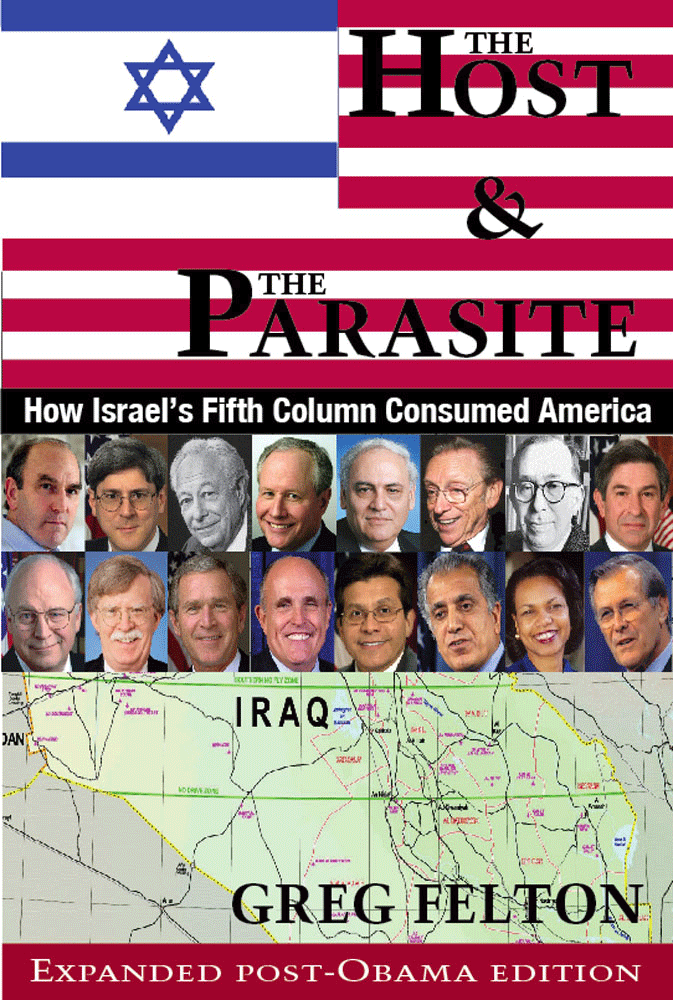gregfelton.com (updated ending)
(March 22, 2012) Soon, the New Democratic Party will have a new leader. Whether it will have any meaningful political future is another matter. I’ve already shown that a Thomas Mulcair victory would formally complete the Israelization of Canada’s national political parties, thereby depriving voters of their last Canadian electoral option. Lamentably, many delegates to the NDP convention seem oblivious to this obvious fact, including one MP with whom I spoke after my earlier column came out. In spite of my presenting evidence of Mulcair’s dual loyalty, bullying, and pro-Harperite proclivities, this highly personable, well-spoken person managed to finesse, deflect, deny or rationalize it away. His responses were so effortless, so polished, that they seemed rehearsed, as if this weren’t the first time he had had to justify his support for Mulcair. For example, he claimed that concerns over Mulcair’s loyalty are exaggerated or taken out of context, although how “ardent supporter of Israel in all situations and in all circumstances” could be misconstrued escapes me. He also quickly tossed off the bald assertion that, at any rate, voters didn’t much care about foreign policy—the exact same line I got from Wayne Moriarty, the pro-Israel hasbaratchik posing as editor of the Vancouver Province. When pressed to justify this claim, though, he backtracked. At any rate, Mulcair had given him “written assurance” that he would respect the NDP’s current policy on Palestine, and that was good enough. The idea that this assurance was inconsistent with Mulcair’s earlier profession of zionist fealty, or that he may have just been manipulating him to buy leadership support, didn’t compute. It wouldn’t have made any difference if I had told him that Mulcair’s co-campaign chairman is former MP Lorne Nystrom, now a director of the Centre for Israel and Jewish Affairs, the Israel Lobby’s main pressure group. The most disquieting aspect of this exchange, though, was not the lame answers I got, but the fact that this person is intelligent and has had at least a basic education in the Middle East. He is not your typical hasbarat from whom one would expect anodyne clichés and cognitive denials. So what does it mean for the future of the NDP if MPs like this willingly refuse to acknowledge a danger staring them in the face? Former leader Ed Broadbent knows all too well. In a candid interview with the Globe and Mail, the former party leader launched a broadside at Mulcair for abandoning core social-democratic values for Liberalish centralism, and not being capable of maintaining unity among the party’s 101 MPs: “People should look carefully at the fact that of the people who were there [in caucus from 2007 to 2011] with Tom, 90 per cent of them are supporting other candidates than Tom,” said Broadbent. Already, talk of increased infighting is making Broadbent look prescient, and this development invites questions of how long the NDP could expect to hold itself together under Mulcair. If conference delegates want a historical example of what infighting and a sudden lurch to the right might do to the party, they need look no further than what happened to the Progressive Conservative Party. Brian Mulroney, a venal, temperamental, outsider was chosen leader at a convention in June 1983 for reasons that had everything to do with image and none to do with competence. The man he replaced, Joe Clark, was a highly principled MP who unfortunately lacked the political acuity to maintain his party in government, or hold it together in the face of concerted internal dissention. Under Mulroney, the PC Party would follow a reactionary, right-wing economic dogma that was also ascendant in the U.S. and U.K. Reason and balance in foreign and economic affairs would give way to the uncritical embrace of U.S. militarism and Israeli “self-defence,” denial of Palestinian rights, lower corporate taxes, minimal government, and economic continentalism. Under Clark’s short-lived prime ministership, the party followed economic moderation, an independent foreign policy, and showed respect for Palestinian rights. In June 1993, 10 years to the month after becoming leader, Mulroney retired from politics, the damage having been done. In the electoral rout that same year, hapless bag-holder Kim Campbell led the PCs to near obliteration—two seats. The rest of the party fissured into a Quebec Separatist Party (the Bloc Québécois) and a Corporatist Christian Party (the Reform Party), which would form the nucleus of the present-day Harperite party. For all of his shortcomings, Clark was still favoured to win the 1984 election. Had the PC Party stuck with him as leader, it would likely still be around today. Like Mulroney, Mulcair is a party outsider, though he does have political experience—a former Quebec Liberal who later tried to hire himself out to the Harperites. He also has a flash temper, and supports an alien ideology to the right of the NDP’s principles. Social democrats cannot be expected to coexist within the same party as centrist compromisers who would turn the NDP into an insipid Liberal-lite Party. If this were to happen, the Liberal-lite faction would eventually form a formal or informal union with the larger “Labour Zionist” Liberal Party, thereby reducing the NDP to rump status in the House of Commons. If 42 other NDP MPs are prepared to vote for Mulcair, perhaps disintegration is inevitable, even necessary to revitalize the party. Under the late Jack Layton, the party began to lose focus and ended up sacrificing principle for political expediency, as the Gaza flotilla debacle proved. Convention delegates will have to decide if the NDP is worth preserving, or admit defeat by embracing their inner Mulroney to let history take its predictable, destructive course. Result: Well, the NDP voted for self-destruction. Mulcair won the party leadership, but it took four ballots. and even then he won only 57 percent of the vote. The deep division between corporate zionists and social democrats is now out in the open. When Joe Clark called for a leadership conference in 1983, he at least had 66.7 percent support. The NDP will now have to spend considerable effort to defend its integrity, which means it will be less effective as an Opposition party. Under Mulcair, the NDP now stands for No Defensible Principles. (Hold cursor over picture and click to read the Zionist Imperial Announcement) | |||||||||||||||||||||



